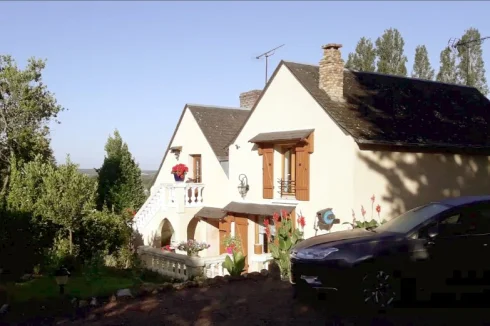French Tax and Social Security Changes for 2018
Friday 06 October 2017
The government have published their tax and social security programme for next year, so what does it mean for households and small businesses?
The proposals have yet to receive parliamentary consent, and they may well be changed during their passage through the legislative process. We will come back to some of them when they have been enshrined in law next year, but below is a summary of the main measures.
Income Tax
The rates of income tax remain unchanged, but each band has been increased by 1%, in line with inflation.
The new bands, for each slice of income earned in 2017, are as follows:
| Tax Band | Rate |
| Up to €9,807 | 0 % |
| €9,808 to €27,086 | 14 % |
| €27,087 to €72,617 | 30 % |
| €71,618 to €153,782 | 41 % |
| From €153,783 | 45 % |
Local Rates
The government are proposing abolition of the taxe d’habitation for around 80% of households, which will be undertaken on a phased basis over three years, commencing 2018, with complete abolition in 2020 for eligible households.
The first-year reduction of 30% applies to those with a maximum income threshold:
- Single persons whose net taxable income (after allowances) does not exceed €27K;
- Couples whose taxable income is no higher than €43K;
- Increased by €6K for each additional dependant in the household.
Those whose incomes marginally exceed these thresholds will also benefit from a smaller reduction.
Second homes are excluded, and the TV licence remains payable.
Energy Conservation Grants
The tax credit of 30% for the installation of double glazed windows and insulated doors and shutters has been reduced to 15% with immediate effect, with complete abolition planned for the end of March 2018. Oil fired boilers are now also excluded from the tax credit. Tax credits for other works remain in place.
Taxation of Investment Income
With the objective of simplification of rates and regimes, a single flat rate tax (prélèvement forfaitaire unique) of 30% will apply on all savings and investment income and gains - interest, dividends and shares - from January 2018. The tax comprises income tax at the rate of 12.8% and social charges of 17.2%.
The current abatement on dividends (40%) and on share sales (50%, 65% and 85%, depending on duration of ownership) will be abolished.
The new tax will also apply to assurance vie gains, although only where the amount deposited is higher than €150,000 per person (€300,000 for a couple). Concessions will also apply for older contracts. Below the €150K threshold the current favourable tax regime on contracts held for at least 8 years (income tax free annual allowance of €4,600 per person on gains and a rate of 7.5% above allowance) will continue to apply.
The bank savings accounts Livret A and LDD will continue to be exempt. Neither will the tax apply to rental income or capital gains on the sale of property.
By option, those whose tax imposition would otherwise be lower than the combined rate (marginal rate under 30%) will be able to be taxed using the current tax regime, including the abatement on dividends and share sale.
Wealth Tax
The scope of the wealth tax (l’impôt sur la fortune) will be scaled back to apply only to real estate, and re-titled l’impôt sur la fortune immobilière. The same tax rates and bands will continue to apply. Property held by registered professional landlords (LMP) will be exempt. The government also appears to be conceding to parliamentary pressure for the scope of the tax to be widened to include luxury goods, such as yachts, private jets and race horses.
Social Charges
The rate of CSG (one of several social charges) increases by 1.7% points. This means the rate of CSG on pension income increases from 6.6% to 8.3%; on rental income and capital gains it increases from 8.2% to 9.9%. The rate on salaried income increases from 7.5% to 9.2%.
CSG will remain deductible against income tax, except for investment income subject to the new flat tax. The deductible rate on pension income will increase in the same proportion, from 4.2% to 5.9%, and it will be the same rise on rental income, from 5.1% to 6.8%, although there is no deduction possible for non-residents. Current exemptions and lower rates on certain pension income will continue to apply.
Social Security Contributions
The social security contributions for health and unemployment paid by employees on their salaried income will be abolished. The rates are currently 0.75% and 2.4%, giving a total reduction of 3.15%. Many self-employed workers will also benefit from abolition of the allocations familiales social security contribution and a reduction in health contribution. These reductions are to compensate for the increase in CSG.
Forfait Journalier Hospitalier
The daily charge payable by the patient for admission to a hospital beyond a 24 hour period increases from €18 to €20. If you hold a complementary 'top-up' health insurance policy this charge will normally be covered by the policy, although it is possible your premium will increase. A range of exemptions apply.
Micro-Entrepreneur Turnover Thresholds
The maximum turnover limits for micro-entrepreneurs will be doubled, increasing from €33,200 to €70,000 and from €82,800 to €170,000 for businesses in each category. However, the VAT(TVA) thresholds remain the same. The new thresholds will apply on 2017 income.
Business Start-Up Social Security Contributions
All new small businesses will be exempt from several social security contributions in their first year, subject to a maximum profit threshold of €40,000. There will also be concessions for the following two years.
Company Taxation
The main rate of company taxation (l'impôt sur les sociétés - IS) will be reduced from 33⅓% to 28% on profits no higher than €500K, and down to 25% in 2022. The lower rate of 15% on profits below €38,120 will remain in place.
Business Rates
From 2019, those businesses with an annual turnover less than €5,000 will be exempt from business rates, the Cotisation foncière des entreprises (CFE).
Régime Social des Indépendants (RSI)
The RSI insurance fund for self-employed workers will be gradually abolished and merged into the general fund, a measure being taken due to the widespread criticism of the performance of the RSI over many years.
Thank you for showing an interest in our News section.
Our News section is no longer being published although our catalogue of articles remains in place.
If you found our News useful, please have a look at France Insider, our subscription based News service with in-depth analysis, or our authoritative Guides to France.
If you require advice and assistance with the purchase of French property and moving to France, then take a look at the France Insider Property Clinic.





